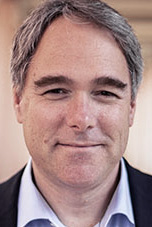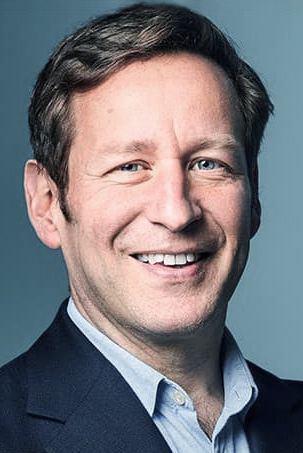

 Do human rights come into the picture when technology and policy work are involved? If so, where? This is a question that has come up multiple times during the last dozen years, and occasionally even before, in Internet Governance discussions. These discussions have included debates on whether human rights were specifically applicable to protocol design or to the organizations developing protocol standards.
Do human rights come into the picture when technology and policy work are involved? If so, where? This is a question that has come up multiple times during the last dozen years, and occasionally even before, in Internet Governance discussions. These discussions have included debates on whether human rights were specifically applicable to protocol design or to the organizations developing protocol standards.
 In an era where our lives are increasingly intertwined with digital technologies, a recent development in the realm of digital sovereignty has sparked a pressing concern for nations and individuals alike. The concept of digital self-determination, once hailed as a great equalizer, has become a battleground for power, privacy, and control, with governments and tech giants vying for dominance in the digital realm.
In an era where our lives are increasingly intertwined with digital technologies, a recent development in the realm of digital sovereignty has sparked a pressing concern for nations and individuals alike. The concept of digital self-determination, once hailed as a great equalizer, has become a battleground for power, privacy, and control, with governments and tech giants vying for dominance in the digital realm.
 At the recent Internet Corporation for Assigned Names and Numbers (ICANN) 80 Policy Forum meeting, one notable takeaway was its close focus on questions around the stability and security of the technical layer of the Internet: the growing risks which assail it, and potential ways to address these through governance.
At the recent Internet Corporation for Assigned Names and Numbers (ICANN) 80 Policy Forum meeting, one notable takeaway was its close focus on questions around the stability and security of the technical layer of the Internet: the growing risks which assail it, and potential ways to address these through governance.
 The Kingdom of Saudi Arabia (KSA) will host the Internet Governance Forum in December. There are four main themes -- innovation and risk; the impact of technology on peace and development; using technology to advance human rights; and improving digital governance. Every IGF is a unique and annual opportunity for thousands of people engaged in key issues to come together and engage. KSA is hosting for the first time, and it is an exciting prospect.
The Kingdom of Saudi Arabia (KSA) will host the Internet Governance Forum in December. There are four main themes -- innovation and risk; the impact of technology on peace and development; using technology to advance human rights; and improving digital governance. Every IGF is a unique and annual opportunity for thousands of people engaged in key issues to come together and engage. KSA is hosting for the first time, and it is an exciting prospect.
 I recently appeared on the 419 Consulting podcast to discuss the European Union's NIS 2.0 Directive and its impact on the domain name ecosystem. I encourage all TLD registries, domain name registration service providers, and DNS operators to listen to the recording of that session which Andrew Campling has made available.
I recently appeared on the 419 Consulting podcast to discuss the European Union's NIS 2.0 Directive and its impact on the domain name ecosystem. I encourage all TLD registries, domain name registration service providers, and DNS operators to listen to the recording of that session which Andrew Campling has made available.
 Last week (29-30 April), Global Partners Digital (GPD) joined other civil society groups, business actors, the technical community and governments in São Paulo, Brazil for NETmundial+10: the ten year follow up to the landmark NETmundial process in 2014, which set out principles for multistakeholder approaches to Internet governance. In the intervening decade, the policy landscape has been transformed by an increase in policy and normative frameworks related to digital technologies, as well the advent of new technologies—particularly AI—and their attendant opportunities and challenges.
Last week (29-30 April), Global Partners Digital (GPD) joined other civil society groups, business actors, the technical community and governments in São Paulo, Brazil for NETmundial+10: the ten year follow up to the landmark NETmundial process in 2014, which set out principles for multistakeholder approaches to Internet governance. In the intervening decade, the policy landscape has been transformed by an increase in policy and normative frameworks related to digital technologies, as well the advent of new technologies—particularly AI—and their attendant opportunities and challenges.
 The São Paulo Multistakeholder Guidelines adopted at last week's NETmundial +10 conference (Sao Paulo, 29-30 April 2024) provide a breath of fresh air in the current digital debates. They untangle quite a few confusions and offer a pragmatic path forward. The NETMundial statement resolves terminological confusion between internet and digital by combining two terms in the phrase 'internet governance and digital policy'.
The São Paulo Multistakeholder Guidelines adopted at last week's NETmundial +10 conference (Sao Paulo, 29-30 April 2024) provide a breath of fresh air in the current digital debates. They untangle quite a few confusions and offer a pragmatic path forward. The NETMundial statement resolves terminological confusion between internet and digital by combining two terms in the phrase 'internet governance and digital policy'.
 What defines a stakeholder in Internet governance? Is it a professional occupation, an ideology, or a specific methodology? One of the key themes emerging in the Netmundial+10 event has been that of stakeholder involvement, participation and representation in different IG mechanisms. The numeric increase in contributors to these processes since the original Netmundial is palpable. However, questions remain about the definition of a stakeholder and the premises under which these actors should engage in policy work together.
What defines a stakeholder in Internet governance? Is it a professional occupation, an ideology, or a specific methodology? One of the key themes emerging in the Netmundial+10 event has been that of stakeholder involvement, participation and representation in different IG mechanisms. The numeric increase in contributors to these processes since the original Netmundial is palpable. However, questions remain about the definition of a stakeholder and the premises under which these actors should engage in policy work together.
 As the digital landscape continues to evolve at an accelerated pace, the role of end-user participation in Internet governance has never been more crucial. With the World Summit on the Information Society (WSIS) +20 Review on the horizon, it's time to critically evaluate the progress made and the vast terrains yet to be charted. This topic was recently discussed at the EURALO round table moderated by Pari Esfandiari with panelists Sandra Hoferichter, Olivier Crépin-Leblond, and Lucien Castex, delving into the intricacies of fostering a user-centric, inclusive, and development-oriented information society since the inaugural WSIS meetings in 2003 and 2005.
As the digital landscape continues to evolve at an accelerated pace, the role of end-user participation in Internet governance has never been more crucial. With the World Summit on the Information Society (WSIS) +20 Review on the horizon, it's time to critically evaluate the progress made and the vast terrains yet to be charted. This topic was recently discussed at the EURALO round table moderated by Pari Esfandiari with panelists Sandra Hoferichter, Olivier Crépin-Leblond, and Lucien Castex, delving into the intricacies of fostering a user-centric, inclusive, and development-oriented information society since the inaugural WSIS meetings in 2003 and 2005.
 Over the next two years, several global dialogues about our shared digital future are taking place -- and big changes could be in the cards. An intensive series of negotiations will see United Nations (UN) Member States weigh in on the future of digital cooperation -- and multistakeholderism finds itself under the spotlight. The multistakeholder model allows everyone who has a stake in the internet to meaningfully engage in discussions and decisions about its future on equal footing, but a number of critics are calling for change.
Over the next two years, several global dialogues about our shared digital future are taking place -- and big changes could be in the cards. An intensive series of negotiations will see United Nations (UN) Member States weigh in on the future of digital cooperation -- and multistakeholderism finds itself under the spotlight. The multistakeholder model allows everyone who has a stake in the internet to meaningfully engage in discussions and decisions about its future on equal footing, but a number of critics are calling for change.